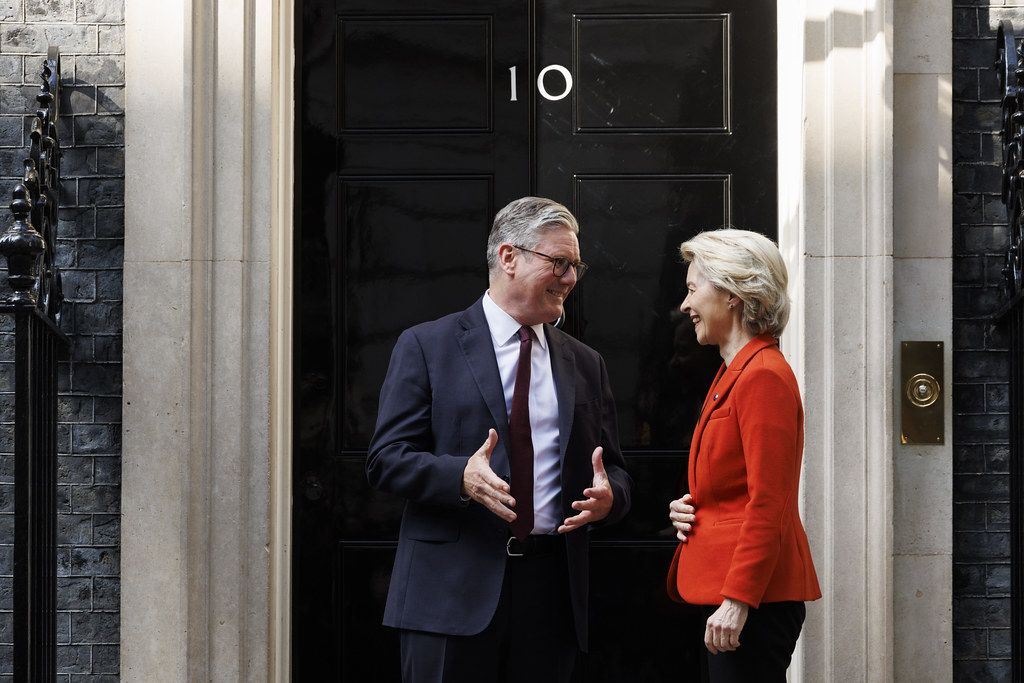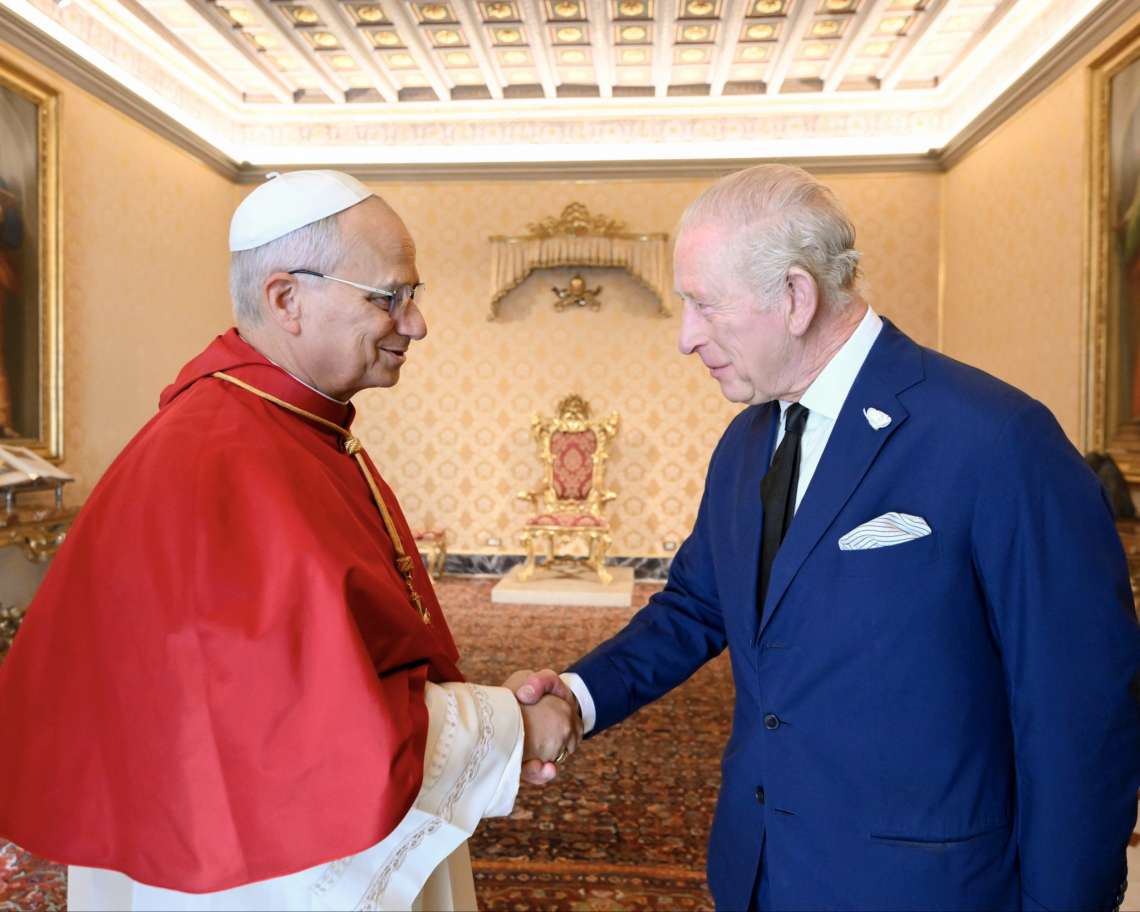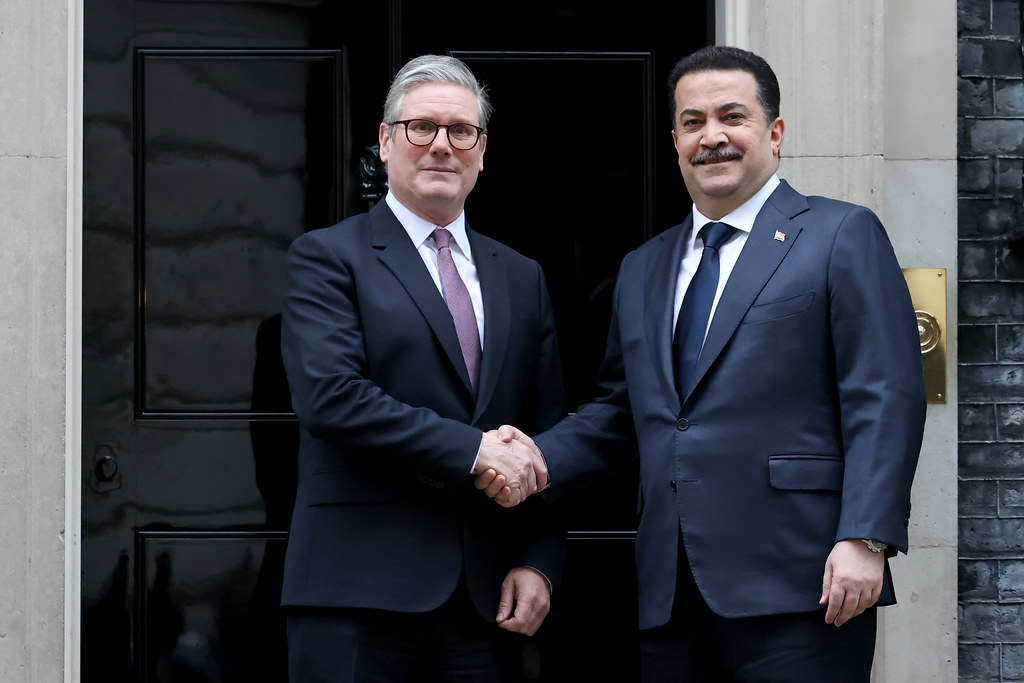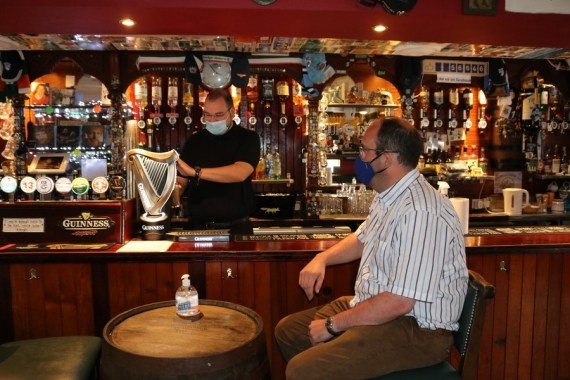The forthcoming deal will slash red tape, cut costs for businesses, and speed up the smooth flow of agrifood trade at the border…reports Asian Lite News
The government has announced that it will suspend the introduction of new border checks on live animal imports from the European Union and on certain animal and plant goods from Ireland, in a move designed to ease trade, reduce costs for businesses and pave the way for a landmark sanitary and phytosanitary (SPS) deal with Brussels.
The forthcoming SPS agreement is expected to create a UK-EU sanitary and phytosanitary zone, cutting red tape, reducing delays at ports and lowering the costs of food trade with Britain’s largest market. Officials argue that the changes will provide a much-needed boost to British traders and consumers alike by strengthening food supply chains and ensuring more reliable access to fresh produce.
Under current plans, border checks on live animal imports from the EU as well as on some plant and animal products arriving from Northern Ireland and the Republic of Ireland—classified as “non-qualifying goods”—were due to come into effect as part of the government’s post-Brexit Border Target Operating Model (BTOM).
However, ministers have now concluded that imposing such checks before the SPS agreement is finalised would be disproportionate and risk creating unnecessary burdens for businesses already navigating tight margins. Instead, inspections on some categories of live animals from the EU will take place at their destination, guided by risk assessments rather than blanket requirements.
Non-qualifying goods from both Northern Ireland and the Republic of Ireland will also continue to enter Britain without physical inspection, although they will remain subject to pre-notification and certification requirements in some cases.
The decision has been framed by ministers as a balance between protecting Britain’s biosecurity and promoting smoother trade flows. The Department for Environment, Food and Rural Affairs (Defra) stressed that surveillance would remain risk-based, ensuring that animal and plant health threats are effectively managed while avoiding disruption at the border.
Baroness Hayman, the government’s Biosecurity Minister, said the approach would give tangible benefits to businesses while maintaining high standards of protection.
“Our deal with the EU will boost British businesses as we cut cumbersome bureaucracy and make trading food with our biggest market both cheaper and easier,” she said. “Protecting the UK’s biosecurity is essential, and our partnership with the EU will ensure this while delivering for working people as part of our Plan for Change.”
The suspension of the new checks is not permanent. Ministers confirmed that the position will be reviewed regularly to ensure that the UK’s biosecurity remains robust. Should risks increase, the government retains the option of reintroducing inspections where necessary.
Defra officials also emphasised that traders must continue to comply with existing rules under the BTOM, which still requires checks in some areas to prevent the import of diseases and pests that could damage domestic farming and food production.
The government has been negotiating with the European Commission over the details of the SPS agreement, which, if agreed, will remove routine border checks on plant and animal products moving between the UK and EU. Such a framework would bring Britain closer to the trading arrangements enjoyed by countries such as Switzerland, which benefits from streamlined food and agricultural trade with the EU thanks to similar agreements.
Industry groups have long argued that additional checks would have increased costs, slowed deliveries and potentially reduced consumer choice, particularly for perishable goods such as fresh meat, dairy and fruit. The suspension is therefore being seen by many as a pragmatic step that anticipates the eventual signing of the SPS agreement.
The move also follows a June announcement that border checks on EU fruit and vegetable imports had been scrapped, again as part of efforts to ease trade flows in advance of the new deal.
Defra confirmed that it will continue to coordinate closely with the Animal and Plant Health Agency, Border Control Post operators and Port Health Authorities to manage biosecurity risks. The aim, ministers said, is to provide reassurance to farmers and the wider food industry while ensuring that the flow of goods remains as smooth as possible.
Officials added that businesses should not interpret the suspension as a wholesale lifting of controls. Documentation and certification requirements still apply in many cases, and the government warned that compliance will be strictly monitored.
The announcement is expected to be broadly welcomed by importers and traders who have been concerned about the impact of additional checks on their supply chains. Food industry representatives have previously warned that full implementation of new border controls could lead to higher prices on supermarket shelves.
While exporters have long pressed for closer alignment with the EU’s SPS rules, ministers have sought to balance that goal with the need to preserve the UK’s regulatory independence post-Brexit. The suspension reflects a recognition that a workable compromise must be found, particularly as Britain continues to seek new trade agreements with other global partners.
For consumers, the most immediate effect may be more stable prices and fewer disruptions in food availability, particularly in the run-up to the crucial autumn and winter trading period. For businesses, the announcement provides temporary breathing space, but many will be watching closely for clarity on the final terms of the SPS deal.
As negotiations progress, the government faces the challenge of delivering an agreement that protects domestic farming standards, maintains public confidence in food safety, and ensures that trade with the EU—still Britain’s largest trading partner—remains viable and competitive.














